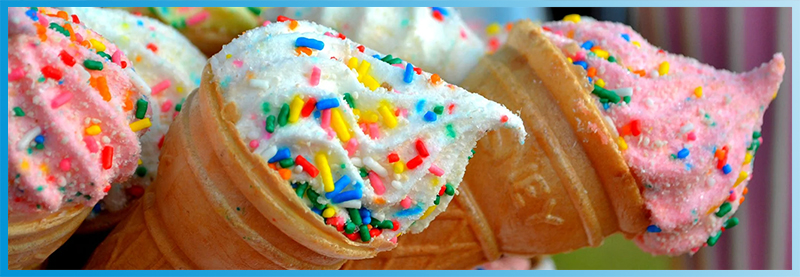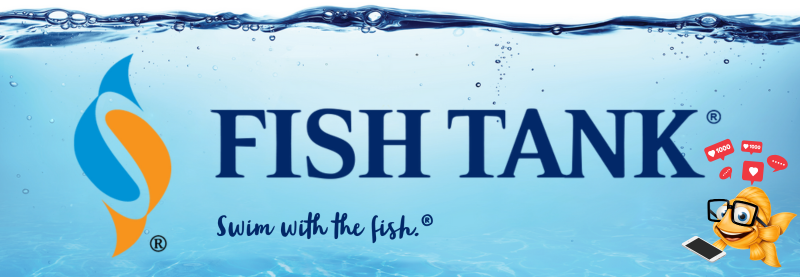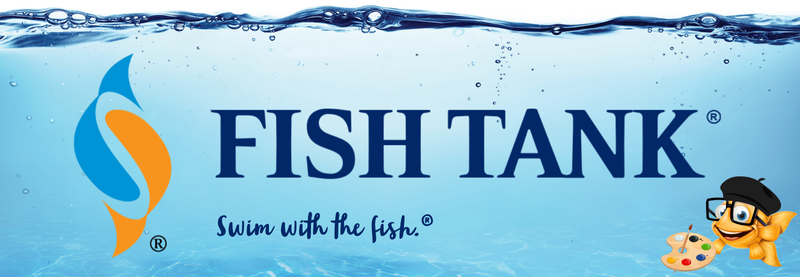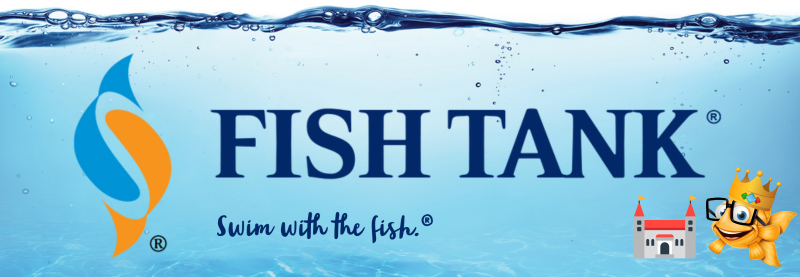Intellectual Property Insights from Fishman Stewart PLLC
Newsletter – Volume 22, Issue 14
Share on Social
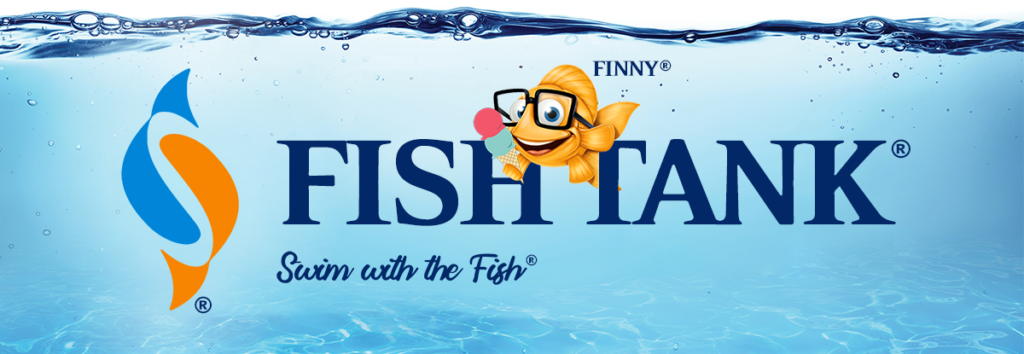
Dairy Queen’s “Blizzard” Left Out in the Cold
By Zachary P. Grant
Dairy Queen, home of the iconic Blizzard frozen treat, was turned upside down in court. In enforcing its trademark rights for “Blizzard” against W.B. Mason – an office supply store – for selling bottled water and copier paper with the same name, a U.S. District Judge ruled against the frozen dessert giant. The case is a chilling reminder that the root of trademark rights is found in consumer perception.
Trademarks rights are generally limited to a particular field of goods and services. That is why Dove Chocolates and Dove Soap peacefully coexist without confusion. Dairy Queen holds five US trademark registrations for various “Blizzard” marks for frozen confections, directed to its popular soft-serve products that are blended with candy, fruits, nuts, or other sweet items. In contrast, W.B. Mason holds two U.S. trademark registrations for “Blizzard” copier paper, as well as a common-law mark for five-gallon jugs of “Blizzard” spring water. In its lawsuit against W.B. Mason, Dairy Queen claimed there is a distinct risk of consumer confusion because both companies sell bottled water, although Dairy Queen’s bottled water is not branded with the Blizzard mark.
In a 217-page opinion, U.S. District Judge Susan Richard Nelson soundly rejected Dairy Queen’s theory in a major win for W.B. Mason. The judge pointed to several important facts in determining likelihood of confusion between the “Blizzard” brands in question. Among them, Dairy Queen introduced no evidence of actual consumer confusion, the brands coexisted without confusion for 11 years, and the businesses each appeal to distinctly different audiences, namely, Dairy Queen is primarily a restaurant that sells food and beverages to consumers, while W.B. Mason is a business-to-business retailer of office supplies. W.B. Mason’s catalog does offer large, five-gallon jugs of water, but such a product is intended for use in office breakrooms rather than sold to individual customers. In other words, the court was confident that people are generally aware that a company that sells small water bottles with its frozen dessert is not the same company that sells giant water jugs to complement the stacks of printer paper in the office.
Dairy Queen has expressed an interest in appealing the ruling, but the road to success is icy. Enforcing trademark rights is a critical endeavor for all brand owners, but prudent observation and analysis of the actual threat of confusion must be carefully considered. If you are enjoying a frozen dairy treat in the office breakroom this summer, see if you can spot any other trademark anomalies of unassociated companies with similar branding. Hint: the sugar brand your find in the cabinets is not related to the pizza brand on your table.
Answer: Domino Sugar / Domino’s Pizza
Published July 8, 2022

Finny continues his adventures around the world!
Finny is now on Instagram! His account is @followfinny.
Sir Finnegan, known as “Finny” to his school of family and friends, is taking a trip to explore the diversity of intellectual property all around the world. If you see Finny on his journey, please take a picture of Finny and post it on social media with the hashtag #FollowFinny so we can track his progress. A plush toy of Finny is available to take home HERE.
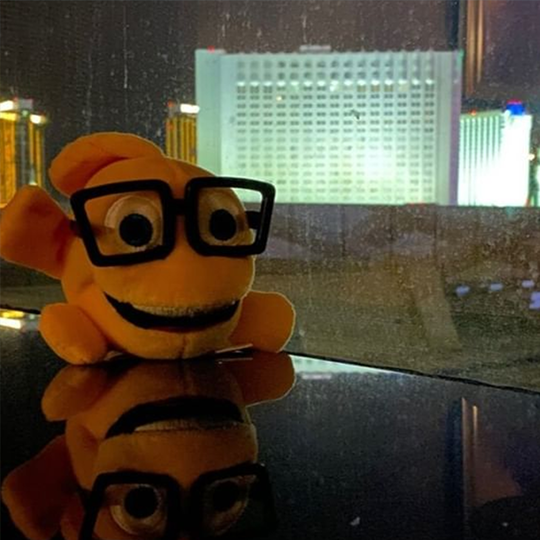

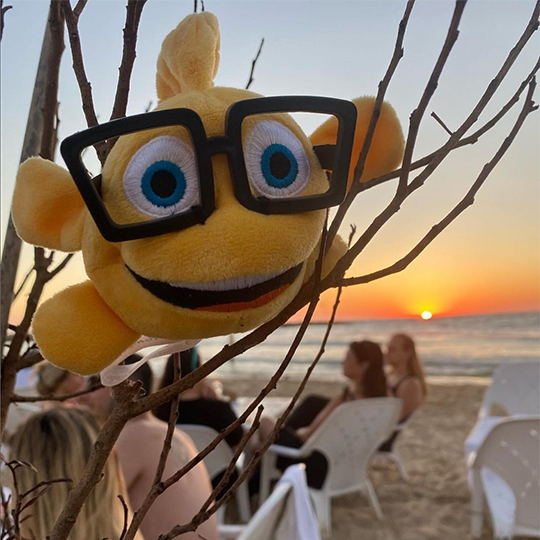
Related Content from Fishman Stewart
In our previous FishTank article “The Great Beige-Off: Influencer Sues for ‘Vibe’ Infringement,” we reported on Sydney Nicole Gifford’s lawsuit against fellow influencer Alyssa Sheil over allegations of copyright infringement involving neutral-toned social media content.
People have long pondered whether or not the Giza pyramids were indeed solely burial chambers, which was the only known, and archaeologically determined, use—until now.
As the story goes, Klein was so taken with the indescribable blue of the sky over the Mediterranean in Nice, France, that he dedicated his artistic talent developing a blue that would imbue the canvas with this color in its purest form.
Despite her pseudo-legal background in Suits, Meghan has been running into one issue after another in her efforts to register the trademark and logo for her new lifestyle company, for now, called “AS EVER”.
By 1930, efforts began in New York to replace Mother's Day with Parent's Day because men were more than just breadwinners. Those efforts didn't catch on, probably because in that era, women often spent more time in the home.
In February, Nike and Skims announced that they will be working together on a new brand, NikeSkims. The co-brand will create a new line of training apparel, footwear, and accessories specifically designed to meet the unique needs of women athletes.
Generally, federal courts have exclusive jurisdiction over copyright cases, and often, this presents an insurmountable paywall for individual artists and small businesses to vindicate their rights, especially where the value of the individual copyrighted works are relatively low.
Dedicated to raising public awareness about the importance of encouraging innovation and creativity throughout the world, the World Intellectual Property Organization (WIPO) annually observes World Intellectual Property Day on April 26 to showcase the role that patents, trademarks, industrial designs, copyrights and trade secrets play in our everyday lives.
Hold onto your foam fingers, sports fans – college sports just got a whole lot more interesting! The latest updates to Name, Image, and Likeness (NIL) rules are making student-athletes bigger than ever, and it’s not just about the game anymore.
Did a federal court in Louisiana recently decide that US copyrights are global rights? It seems so.
IDENTIFYING, SECURING AND ADVANCING CREATIVITY®


